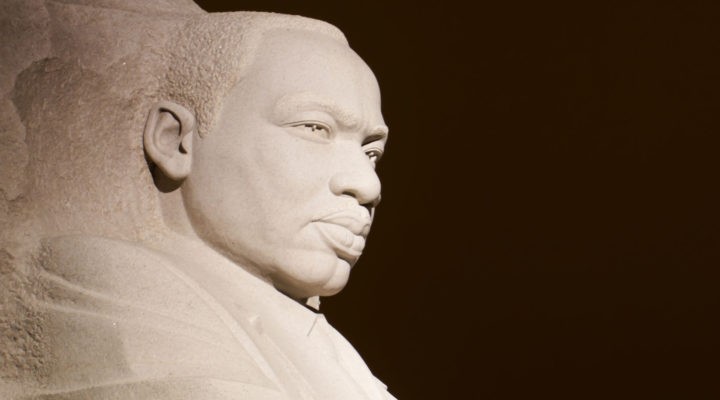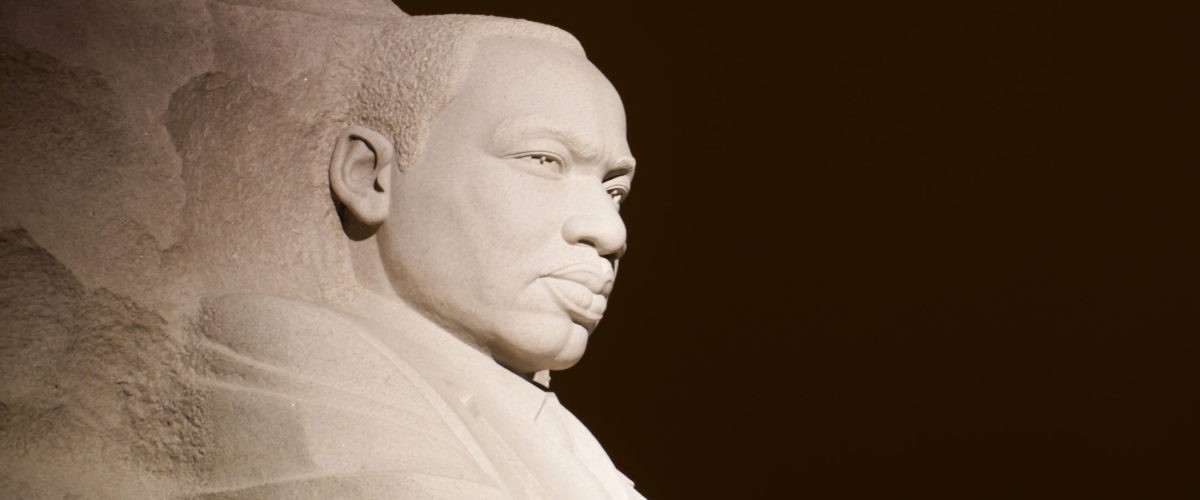On Jan. 20, Donald Trump will take the presidential oath of office on the day set aside to commemorate Martin Luther King Jr.’s birthday. This convergence crystallizes the United States’ ongoing struggle between competing visions of faith and politics in public life.
MLK Day historically has been a day of service and reflection to honor King and his service to our country, which he made clear was fueled by his Christian faith. In contrast, President Trump has engaged with Christianity as a means to an end and to garner support for different elements of his agenda. Trump being sworn in on a day dedicated to King represents how faith has shaped different Christians’ political and public engagement.
Faith long has played a central role in American public and political life. From the founding of our nation on religious freedom to the abolition of chattel slavery to the election of President Barack Obama, religious themes have underscored the moral responsibility of leadership. For many, faith is not confined to private worship but extends into the public square, influencing values, decisions and visions for the common good.
Against this backdrop, Martin Luther King Jr. demonstrated the power of faith to unify and uplift. Grounded in Christian teachings that focused on love and the tenets of Christ, King wove together spiritual conviction and moral clarity to confront systemic racism and inequality. His speeches, infused with biblical imagery, reminded the nation of its obligation to uphold justice and dignity for all.
“King’s activism was deeply political but never partisan.”
King’s activism was deeply political but never partisan. He believed faith compels us to act against injustice, to love our neighbors and to build a beloved community. This vision remains poignant as the nation grapples with polarization and inequality, exacerbated by divisive rhetoric and policies in recent years.
Trump’s time in office offers a very different perspective. While running for office and in his first term, Trump aligned himself closely with mainly white evangelical Christians. Their support has been a cornerstone of his political success and promoted Christian nationalism — a movement that merges religious identity with political ideology.
Christian nationalism isn’t about faith; it is about power and is primarily propelled through white supremacy. It poses unique challenges in public education as its proponents often attack curricula, undermine teachers and promote certain expressions of Christianity at the expense of pluralism. Public schools may teach about religion’s historical role, but Christian nationalism pushes for a specific interpretation of Christianity that aligns with state authority and suppresses faith and theological diversity.
The rise of Christian nationalism highlights a broader crisis in American civil society; not solely theological or political but deeply rooted in our capacity to coexist, respect different beliefs and uphold democratic principles.
Faith must transcend performative gestures. It must inspire actionable commitments to address racial injustice, economic inequality and climate change challenges. Faith compels us to see every individual’s inherent worth and advocate for policies reflecting that truth.
“The intersection of Inauguration Day and MLK Day is a rare moment to reflect on the moral responsibility of leadership and the transformative power of faith in public life.”
King’s legacy reminds us that “faith without works is dead.” Our faith should drive us to build bridges, advocate for justice and demand accountability from leaders — whether they align with or challenge our values. The intersection of Inauguration Day and MLK Day is a rare moment to reflect on the moral responsibility of leadership and the transformative power of faith in public life.
Inaugurations are not merely political ceremonies; they are moments of national reflection. The inclusion of prayers and Scripture readings underscores the role of faith in shaping the nation’s moral conscience.
However, these moments also remind us of the need to hold leaders accountable to the principles of integrity, humility and justice.
Trump’s 2017 inauguration featured prominent faith leaders, reflecting the role of religion among his advisers. Yet his presidency sparked deep divisions over whether his actions aligned with faith’s core principles of justice, compassion and equality. These tensions underscore the ongoing challenge of reconciling faith as a personal belief system with its use as a political tool.
This year, as Trump takes the oath of office on the same day we honor Martin Luther King, the symbolism is profound. It calls for leadership to acknowledge past struggles while committing to a future of justice, equity and opportunity for all. As we witness this year’s inauguration, let us remember the words of Micah 6:8: “He has shown you, O mortal, what is good. And what does the Lord require of you? To act justly, love mercy and walk humbly with your God.”
Quardricos Bernard Driskell is a federal health care lobbyist and an adjunct professor of legislative politics, where he teaches race, religion, and politics at George Washington University Graduate School of Political Management. He also serves as senior pastor of the historic Beulah Baptist Church in Alexandria, Va., and is a member of Faith in Public Life’s national coalition. Follow him on Twitter @q_driskell4.



